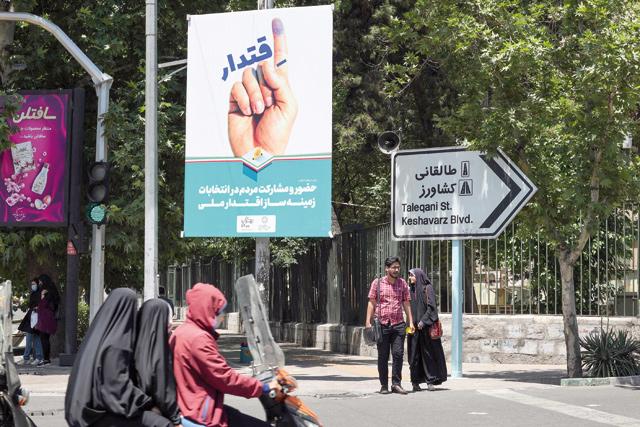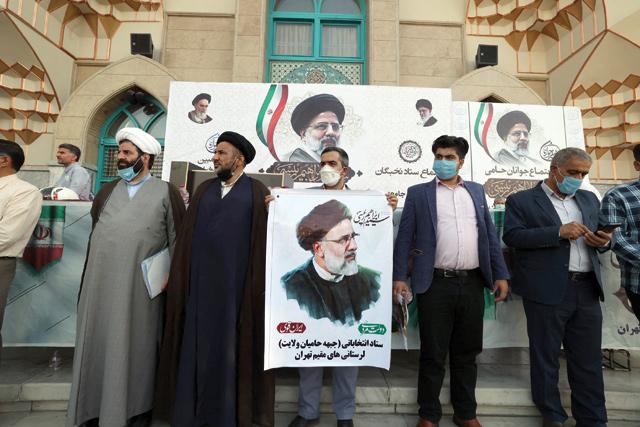You are here
Iran judiciary warns presidential hopefuls against crossing ‘red lines
By AFP - May 30,2021 - Last updated at May 30,2021

Iranians ride on a motorcycle past an electoral poster in the capital Tehran on Saturday (AFP photo)
TEHRAN — A senior Iranian judiciary official on Sunday warned candidates running in the forthcoming presidential election against crossing the “red lines” of the Islamic republic.
Iranians are set to elect a successor to President Hassan Rouhani on June 18, amid widespread discontent over a deep economic and social crisis.
The Islamic republic’s candidate-vetting Guardian Council has approved seven mainly ultraconservative candidates to run in the election from a field of about 600 hopefuls.
“Candidates should not cross the system’s red lines in their campaigns and speeches,” said Tehran Attorney General Ali Alqassi-Mehr, quoted by Mizan Online, the judiciary’s official news agency.
Wrongdoers will be “confronted firmly”, he said, and warned in particular against any attacks on the “reputation” of the judiciary.
Several issues are considered “red lines” in Iran, including questioning the doctrine of Velayat-e faqih (the guardianship of the jurist) which establishes religious authority over politics.
The head of the judiciary, ultraconservative Ebrahim Raisi, is widely considered the favourite candidate in the race to the presidency.
Raisi won 38 per cent of the vote in the 2017 presidential election but was defeated by Rouhani.
The presidential election campaign officially kicked off quietly on Friday.
The Guardian Council’s disqualification of several candidates appeared to have cleared the way for Raisi, who faces four lesser-known candidates from his own camp and two reformists without a strong base.
The Islamic republic’s supreme leader Ayatollah Ali Khamenei on Thursday said candidates should focus on “youth unemployment” and economic woes of “the disadvantaged class”, two themes prominently highlighted in Raisi’s campaign in 2017 and again this year.
Iranian authorities, including the supreme leader, have in recent months called for high turnout, while the limited polls available have pointed to a potential record abstention.
A record 57 per cent of Iranians stayed away from legislative elections in February last year in which thousands of candidates, many of them moderates and reformists, were barred from running.
Iranian media, meanwhile, quoted police chief Hossein Ashtari on Friday warning that the force would take action against those “who break electoral standards” and who “encourage the people not to vote”.
Related Articles
TEHRAN — Ultraconservative cleric Ebrahim Raisi was declared the winner Saturday of Iran's presidential election, a widely anticipated resul
TEHRAN — The field of candidates in Iran’s presidential election thinned out Wednesday, two days before the vote in which a victory by ultra
TEHRAN — Iran’s new ultraconservative President Ebrahim Raisi on Sunday named the chairman of a powerful state-owned foundation sanctioned b













